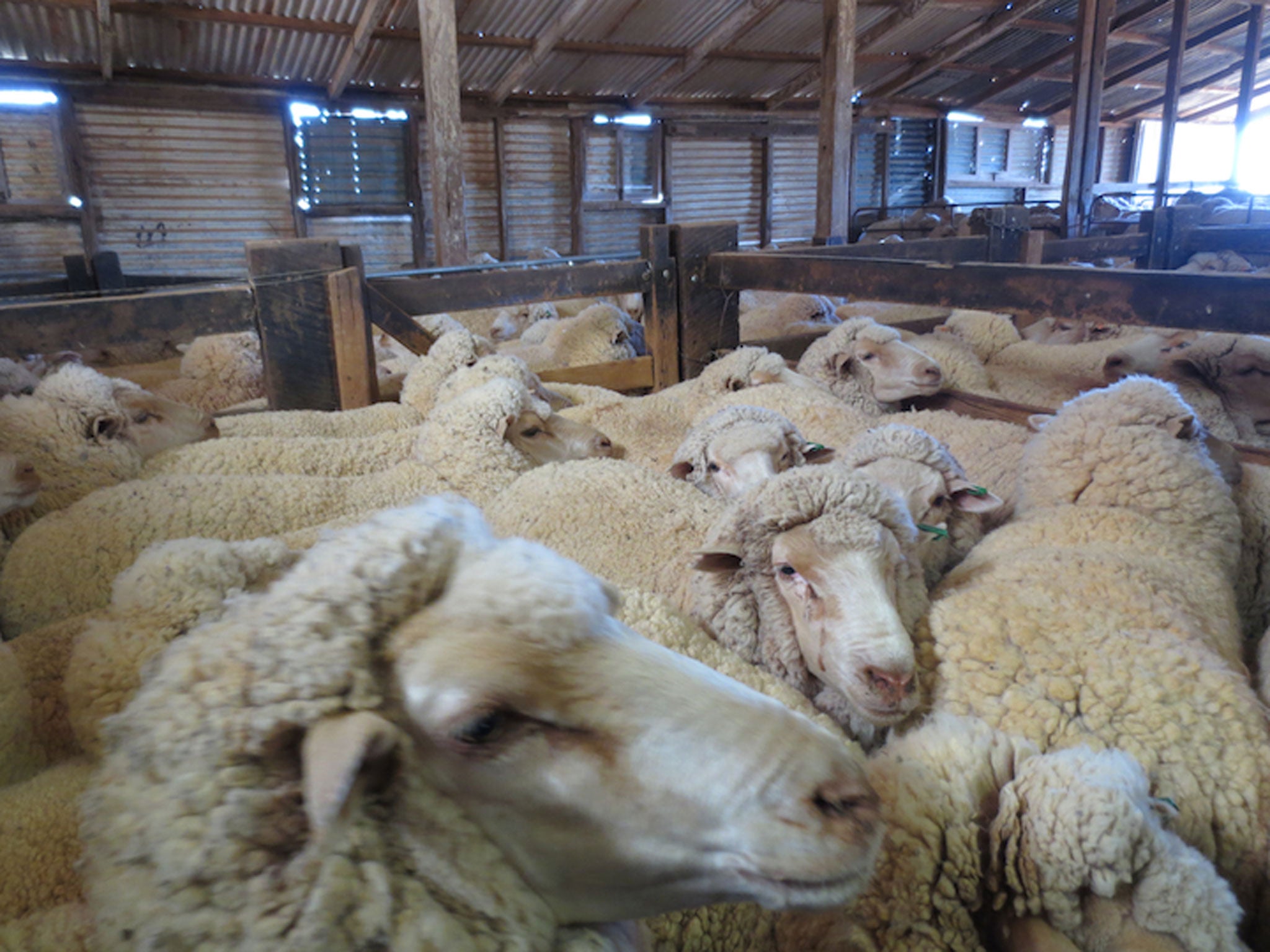The Independent's journalism is supported by our readers. When you purchase through links on our site, we may earn commission.
A wool jumper is just as cruel as a mink coat
A Peta film shows workers who beat, kick, stamp on, throw, mutilate and even kill sheep as they shear them


I've been an animal rights campaigner for 10 years, and during that time I've seen a huge shift in public opinion. These days, I hardly need to explain to anyone what's wrong with fur, and recently there's been a similar move away from angora wool.
But most people don't know that clothing made from sheep's wool comes from an equally cruel industry, and that the shearing process often leaves sheep battered and bloodied.
Peta has released video footage filmed by investigators over several months late last year in more than 30 farms and wool sheds in the USA and Australia, which highlights just some of the cruelty. The disturbing film shows workers who beat, kick, stamp on, throw, mutilate and even kill sheep as they shear them. Worryingly, the shearing crews filmed likely shear millions of sheep each year.
The investigators saw shearers violently punch struggling sheep, and beat and jab them in the face with sharp shears, leaving the gentle animals bleeding from their eyes, nose and mouth. One shearer repeatedly twisted and bent a sheep's neck, finally breaking it.
The filmed sheep that had been denied food and water the night before being shorn, in part to weaken them so that they would put up minimal resistance. As one shearer explained, "Imagine if someone attacked you after you'd had a full meal, you'd have more fight in you; but if you'd been starved for 24 hours, you wouldn't have much of a fight".
When the animals panicked the shearers stamped or stood on their heads and necks. One shearer used a sheep as a mop to wipe urine off the floor.
Most shearers are paid by volume, not by the hour, which means that they have an incentive to work as quickly as they can, with little regard for the sheep's welfare. Investigators recorded shearers who processed up to 27 sheep per hour and up to 35 lambs. Such fast and often violent work can lead to severe cuts on sheep's abdomens, hindquarters and limbs – even on sheep's penises. Large swaths of skin were also cut or ripped off the bodies of many sheep by the shearers.
Workers crudely sewed up the most gaping wounds, without giving the sheep any pain relief. The investigators never saw anyone reprimanded for abusive treatment of sheep or any veterinary care being given to the animals. Instead, injured sheep were shot dead in full view of their companions, and one was even butchered and left in full view of other terrified sheep.
At another farm, workers hauled a dying, lame ram who was gasping for breath into a trailer to be sheared. The ram was left there overnight, apparently without care, and found dead the next morning.
Many consumers and retailers – including Marks & Spencer, ASOS, UNIQLO, Topshop and H&M – already avoid wool that comes from mulesed sheep. Mulesing is a barbaric procedure where farmers use tools that resemble gardening shears to cut huge chunks of flesh from lambs' backsides in a crude attempt to prevent a maggot infestation there. The pain from their wounds is so intense that it often causes lambs to walk sideways like crabs, and it can take weeks for them to heal. Some never do. Boycotting wool from mulesed sheep is a good first step, but buying any wool means potentially supporting the kind of abuse and suffering exposed by Peta's investigations.
Life for British sheep is no easier. In the UK, wool producers subject lambs to painful mutilations such as tail amputation and castration – all without the use of anaesthetics. It is considered normal in the wool industry for at least 4 per cent of young lambs to die every spring, primarily because of poor nutrition. Lameness caused by untreated scald and foot rot (painful bacterial infections) is found in approximately 18 per cent of British flocks, and many ewes are killed just to prevent them from passing the infection on to other sheep.
The only way to be sure we're not buying into cruelty is to leave wool – and all other clothing made from animals – out of our wardrobes. With so many humane fabrics, including rayon, cotton, hemp, acrylic, nylon and microfibre, there really can be no excuse for supporting the violent wool industry.
Join our commenting forum
Join thought-provoking conversations, follow other Independent readers and see their replies
0Comments